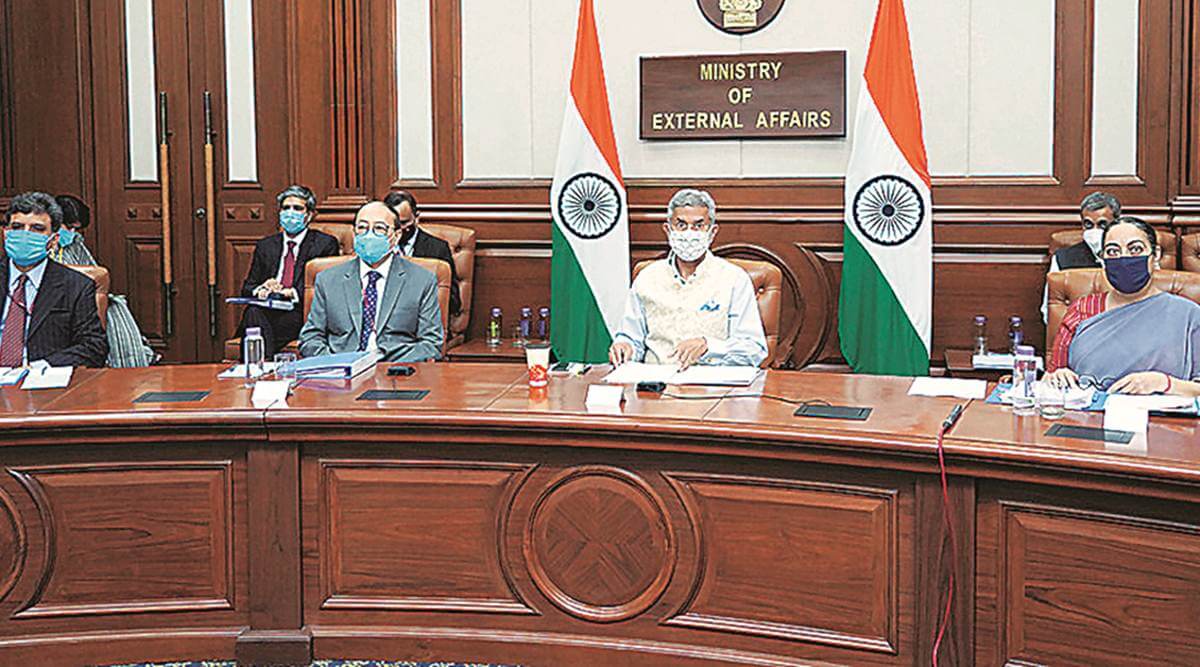South Asia
On Thursday, Sri Lankan President Gotabaya Rajapaksa called for the termination of a light rail project that was being funded by Japan. Rajapaksa said that the $1.5 billion project was not a “cost-effective solution” for the over-crowded and densely populated city of Colombo. [The Hindu]
On the sidelines of the United Nations General Assembly event in New York, S. Jaishankar, India’s Minister of External Affairs, addressed the foreign ministers of the members of the South Asian Association for Regional Cooperation (SAARC). He highlighted the issues of “cross-border terrorism, blocking connectivity and obstructive trade” as three crucial challenges that the group must work towards overcoming. [Hindustan Times]
Central Asia and the Caucasus
At the UNGA on Thursday, Kazakhstan proposed the establishment of a special multilateral agency to control and monitor the threat of biological weapons and arsenal. The Kazakh President also proposed the creation of a global food reserves initiative to ensure food security for all. [Economic Times]
The United Nations Environment Programme has welcomed last week’s Memorandum of Understanding on environmental protection signed between Tajikistan and Afghanistan. [UNEP]
East and Southeast Asia
Prominent Hong Kong democracy activist Joshua Wong was arrested on Thursday on unlawful assembly charges. Authorities claim that Wong participated in an unauthorized gathering in October 2019, and violated the city’s anti-mask law. [Bangkok Post]
South Korean President Moon Jae-in spoke with Japanese Prime Minister Yoshihide Suga over the phone for the first time on Thursday, expressing his willingness to work together with Tokyo to resolve the issue of wartime forced labour. [The Korea Herald]
A new report by the Australian Strategic Policy Institute (ASPI) reveals that China’s network of detention camps for Uighur Muslims is not only far more extensive than previously thought, but has also been expanded in recent years. The document points to at least 61 sites going through “construction and expansion work” between July 2019 and July 2020 and states that 14 more facilities were being built this year. [RFE/RL]
Europe
The Germany-backed migration pact proposed by the European Union faced strong opposition by Hungary, Poland, and the Czech Republic. According to Hungarian Prime Minister Viktor Orban, the “migration quota”, which has always been a point of contention, has not been excluded from the new proposal. [Euronews]
According to TikTok’s latest transparency report, the Chinese-owned app has, at the Kremlin’s request, reportedly restricted nearly 300 Russian videos in the first half of this year. “I think the Russian law is terrible and our community does too, and they strongly voice that on the platform,” said the company’s European government relations and public policy director. [Moscow Times]
Latin America and the Caribbean
In the latest roadblock to the conclusion of EU-Mercosur trade talks, the Brazilian government released a statement arguing that France’s concerns about environmental degradation in the Amazon are driven by “protectionist interests”, saying, “Brazil has already shown it is capable of increasing beef, soy, and corn production while also reducing deforestation.” [MercoPress]
Middle East and North Africa (MENA)
Rival Palestinian factions Hamas and Fatah have announced their unified vision to host general elections in the territory, which will be held in three stages over the next six months. [Al Jazeera]
As India’s coronavirus cases increase, Saudi Arabia has reportedly suspended all flights from the country and those who have visited it in the past 14 days. Sources are unsure of how long the travel ban will last. [Reuters]
The United States has announced that it will be donating humanitarian aid worth $720 million to Syria, in addition to $108 million to South Sudan and $152 million to the conflict-ridden Sahel region in Africa. [US News]
North America
A special session of the UN Security Council (UNSC) saw a heated exchange between veto-wielding US and China, who sought to blame each other for the spread of the novel coronavirus. China chided America for constantly accusing others of mishandling the pandemic when it had the most confirmed cases and fatalities, while the US criticized the council for allowing its members to focus on political grudges rather than the critical issue at hand. [Al Jazeera]
US House Democrats are expected to introduce a bill next week to reduce the tenure of Supreme Court justices to 18 years from current lifetime appointments, in an effort to limit partisan warring over vacancies and to preserve the legitimacy of the court. [Reuters]
Oceania
Australia’s 2nd largest bank, Westpac, has been fined over $1 billion after it was revealed that it had committed 23 million breaches of financial law in 2019. [news.com.au]
Sub-Saharan Africa
During a between the Assistant Secretary for the US Department of State’s Bureau of African Affairs, Tibor Nagy, and Zimbabwe’s Foreign Minister, Sibusiso Moyo, the US urged President Emmerson Mnangagwa’s administration to respect constitutional rights and bring an end to political suppression and corruption in the country. [New Zimbabwe]
The head of the United Nations Commission on Human Rights, Yasmin Soka, said that senior government officials in South Sudan have embezzled upwards of $36 million from the country’s financial reserves. More damning still, she alleged that these “illicit financial flows” have been “aided and abetted” by international corporations and multinational banks. [Africa Times]
World News Monitor: 25 September, 2020
A quick look at events from around the globe.
September 25, 2020

External Affairs Minister, S. Jaishankar, addressing the foreign ministers of SAARC. SOURCE: ANI
